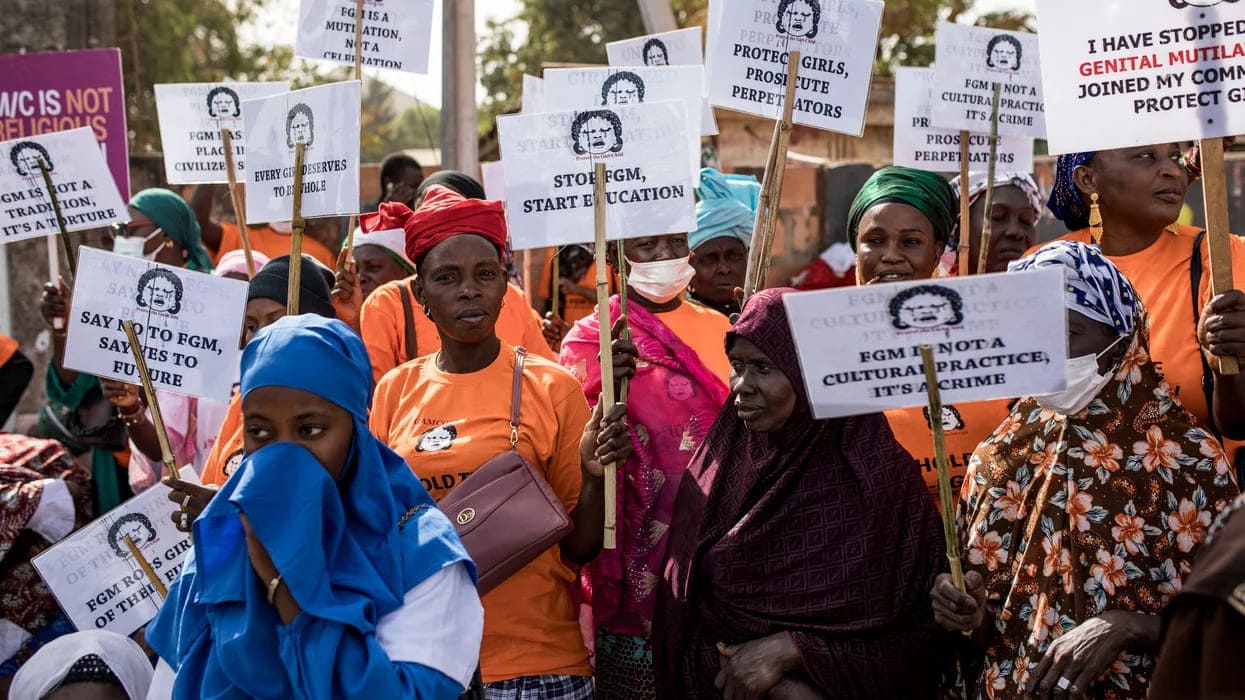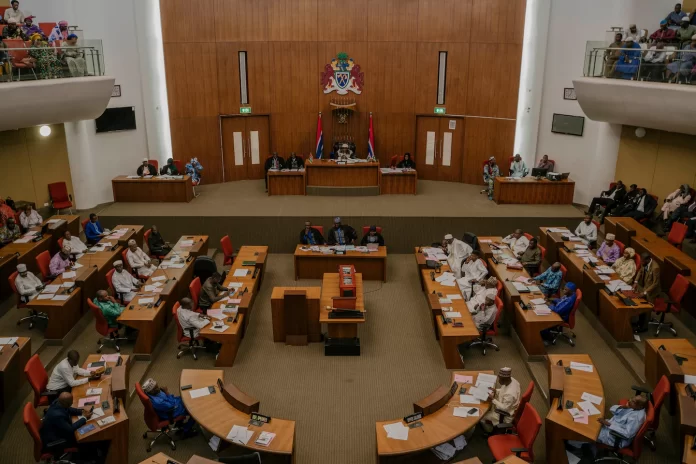Facebook Twitter (X) Instagram Somali Magazine - People's Magazine
In a significant parliamentary vote, Gambia has decided to uphold its ban on female genital mutilation (FGM), rejecting a bill that aimed to decriminalize the practice. The decision to maintain the prohibition reflects the country’s ongoing commitment to protecting women’s rights and health.
Parliamentary Vote on Female Genital Mutilation (FGM)
The vote took place in the National Assembly, where lawmakers debated the Women’s (Amendment) Bill. The bill sought to reverse the 2015 ban on FGM, arguing for cultural preservation and individual choice. However, the majority of parliamentarians voted against the bill, thereby reinforcing the existing legal framework that criminalizes FGM.
Commitment to Women’s Rights and the fight against Female Genital Mutilation (FGM)
The rejection of the bill is seen as a victory for advocates of women’s rights and health, who have long campaigned against FGM due to its severe health risks and violation of human rights. FGM involves the partial or total removal of female genitalia for non-medical reasons, leading to long-term physical and psychological consequences for survivors.
Dr. Isatou Touray, a prominent women’s rights activist and former Vice President of The Gambia, praised the parliamentary decision. “This vote is a crucial step in our continued fight against gender-based violence and the protection of our girls and women,” she stated. “It reaffirms our national commitment to upholding human rights and ensuring the health and well-being of our citizens.”
Public Reaction and Advocacy
The parliamentary decision has garnered widespread support from human rights organizations, healthcare professionals, and international bodies. The United Nations Children’s Fund (UNICEF) and the World Health Organization (WHO) have consistently advocated for the eradication of FGM, highlighting its detrimental impact on women’s health and its violation of human rights.
Local communities and advocacy groups in The Gambia also expressed their approval of the decision. Awa Badjie, a leader in the anti-FGM campaign, remarked, “We are relieved and grateful that the ban remains in place. This is a clear message that our country prioritizes the safety and dignity of its women and girls.”
Ongoing Efforts to Combat Female Genital Mutilation (FGM)
Despite the legal ban, FGM remains a deeply entrenched cultural practice in some regions of The Gambia. Efforts to eradicate it continue, with educational programs, community outreach, and support services for survivors playing crucial roles.
The government, in partnership with NGOs and international organizations, has been working to raise awareness about the dangers of FGM and promote alternative rites of passage. Training healthcare workers and providing legal support to enforce the ban are also key components of the strategy to eliminate the practice.

Conclusion
The Gambia’s decision to uphold the ban on female genital mutilation marks a significant milestone in the fight against gender-based violence and the protection of women’s rights. As the country continues to combat FGM through education, advocacy, and enforcement, this parliamentary vote serves as a reaffirmation of its commitment to safeguarding the health and dignity of its women and girls.

